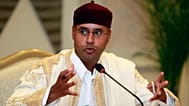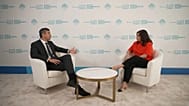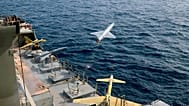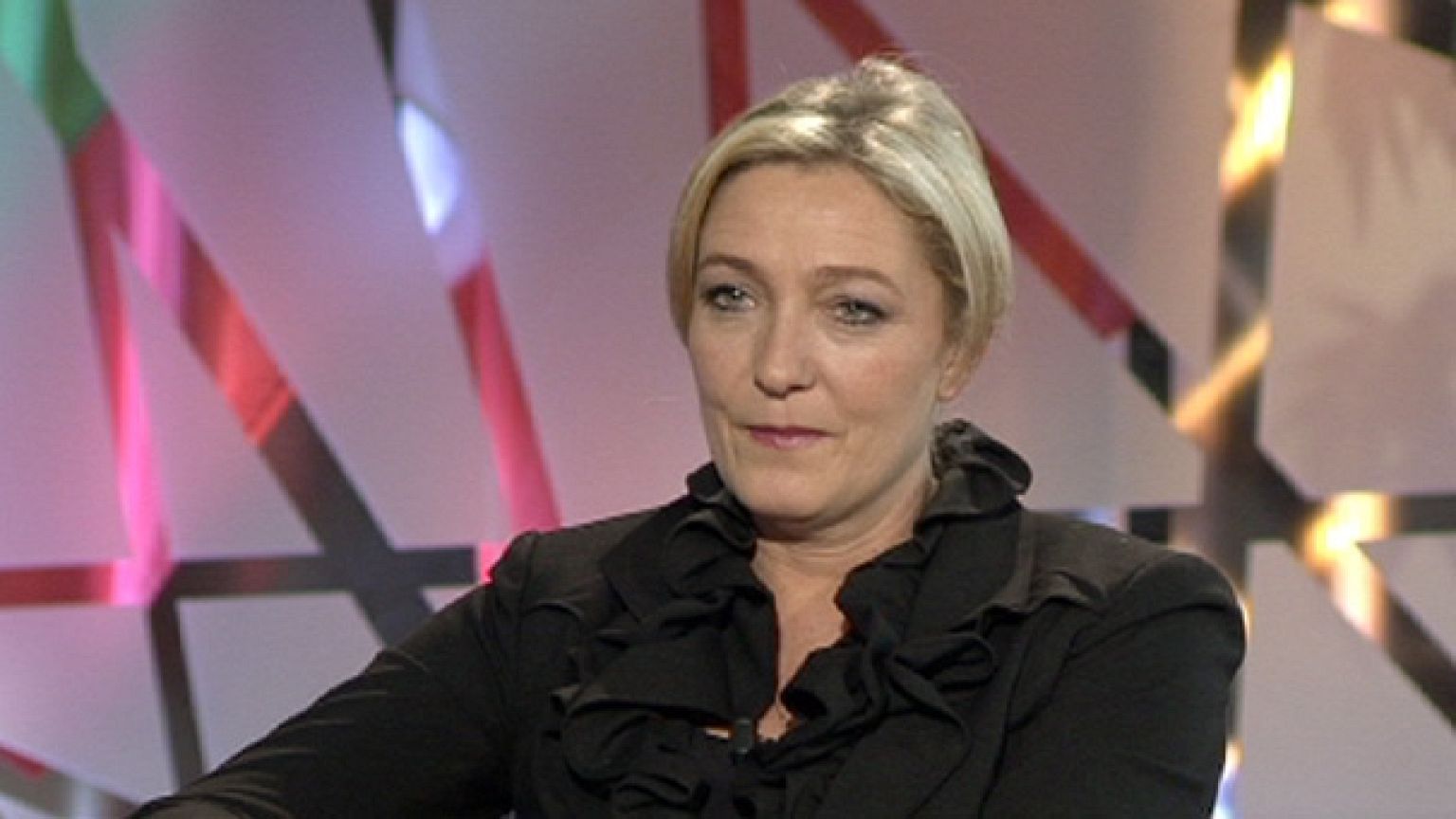Marine Le Pen wants to give France’s far right Front National a new face, to change how it is seen in the eyes of the broad public. The 42-year-old new Front National president is the youngest daughter of party-founder Jean-Marie Le Pen. Some forecast that it will attract 18 percent of the vote in their country’s presidential election in 2012. In Strasbourg, Marine Le Pen tells Cecilia Cacciotto about her goal to become president of France.
Cecilia Cacciotto, euronews:
After your father’s 40 years as leader, you have succeeded him at the head of the Front National, announcing changes. How will you put distance between yourself and your father’s policies?
Marine Le Pen:
I’m not going to distance myself, because I am proud of my father’s accomplishments. He created in France a party which defends the nation, the sole movement to do so among all the globalist parties dominating the political class, and he has managed to make it endure. But I believe we are entering a new chapter in the story of the Front National, a chapter I call the eye-openers and builders. With many others, my father raised awareness of a whole series of problems which are hitting France with full force. We want to be builders, which is to say open this chapter of the Front National which will carry us to power. That is what we want to do, our battle plan, to be able to apply our ideas, to access power and apply our ideas.
euronews:
How? You are quite clearly, if I understand it well, referring to the 2012 elections, in which you are forecast with 18 percent of the votes. How will you raise that percentage?
Marine Le Pen:
Firstly, we have a job to do implanting the Front National locally, and then we have to multiply openings in what the Front National says. You know, for a long time the Front National was closed off by the press and the political class to all but security and immigration problems, whereas we have a much broader programme than that. My role was to raise visibility for the Front National’s economic and social programme, which, it’s true, was little known, but also its ecological programme, and the image we have of the state, of the role of the state in France.
euronews:
Is France ready to have a woman president?
Marine Le Pen:
Ah yes! I believe there is absolutely no problem with that, and if Ségolène Royal was not elected, in reality it was more due to her personality than her being a woman.
euronews:
Europe doesn’t interest you much, I’ll quote you…
Marine Le Pen:
No, I never said that. I never said that. On the contrary, it is of interest because I fight it with all my strength — in any case, the European Union, not Europe — Europe is a civilisation, it’s a territory, I am European. But the European Union is a structure I consider as totalitarian, it’s the European Soviet Union, yes, yes… the more it moves forward the more it builds itself without the people and even against people. The more it imposes directives on us… we don’t see well what it brings us, it must be said, apart from ruining our economy, restricting our budget plans, restricting our monetary plans and imposing on us a model of living which is not our own.
euronews:
If you are elected president, will you take France out of Europe?
Marine Le Pen:
I believe the European Union is dead. The light it is giving off is that of a dead star. It believes it is alive but it is already dead, because its money, which it made, and around which it created itself, is itself dead. Today, we are trying to save the euro at all costs. But what IS the cost? I don’t want my people to be obliged, like the Irish, to lower the minimum income by 12 percent, to lower family allowances, to lower unemployment benefits, to impoverish public service workers. If that is the price we must pay to save the euro, well I say it’s better to get out of Europe and better to leave the euro.
euronews:
So what future do you see for Europe?
Marine Le Pen:
I believe it must all be rebuilt. I think that Europe can live if it is constituted around the concept of a Europe of nations, which respects national sovereignty, is a Europe of cooperation, the only concept, objectively, which yields good results.
euronews:
Last October in Vienna, several parties of the extreme right gathered, among them Italy’s Lega Nord and Austria’s FPO, and they decided to launch a campaign promoting a referendum on Turkey joining the European Union. You weren’t there. Were you not invited or is your position on Turkey joining different?
Marine Le Pen:
No, not at all. You know, we in the Front National were in full internal competition. We were waiting to see who was going to be elected president, in order to be able to make the necessary contact. I believe we have to have contacts between a certain number of European parties, and I am quite ready to participate in organising this referendum in France, on Turkey’s entry. I am against Turkish entry.
euronews:
Did events in Tunisia and Egypt surprise you?
Marine Le Pen:
No, not so much, not so much, because I believe, in reality, that true democratic revolutions are revolutions of hunger. I think that the international monetary system and bad decisions taken by international organisations, such as the IMF and the WTO, led to a massive price rise for essential products, notably food. Two things worry me: the first is the beneficiaries of these revolutions, these democratic aspirations, which I support, but which benefit the ambitions of Muslim fundamentalist political parties to take power in these countries. That is worrying. To deny that is, in my opinion, absurd. The second worry is massive migration.
euronews:
In spite of being elected to head the Front National, and what is expected of you, you remain the daughter of Jean-Marie Le Pen. Has your father never embarrassed you?
Marine Le Pen:
You know, in the history of a movement you take everything, because it’s too easy just to take the good things and reject what can be maddening or things that don’t work as well as other things. I take the whole history of my movement. I do not allow myself, because I find it is not honourable, to sort out what was good and what wasn’t so good. I also try to learn lessons from the past, errors even. I draw experience from the beautiful and great things that the Front National has managed to do. One party alone against all the rest, after all with very little funding compared to the others, which fought under difficult conditions… But I believe I can tell you today that we were never wrong.















